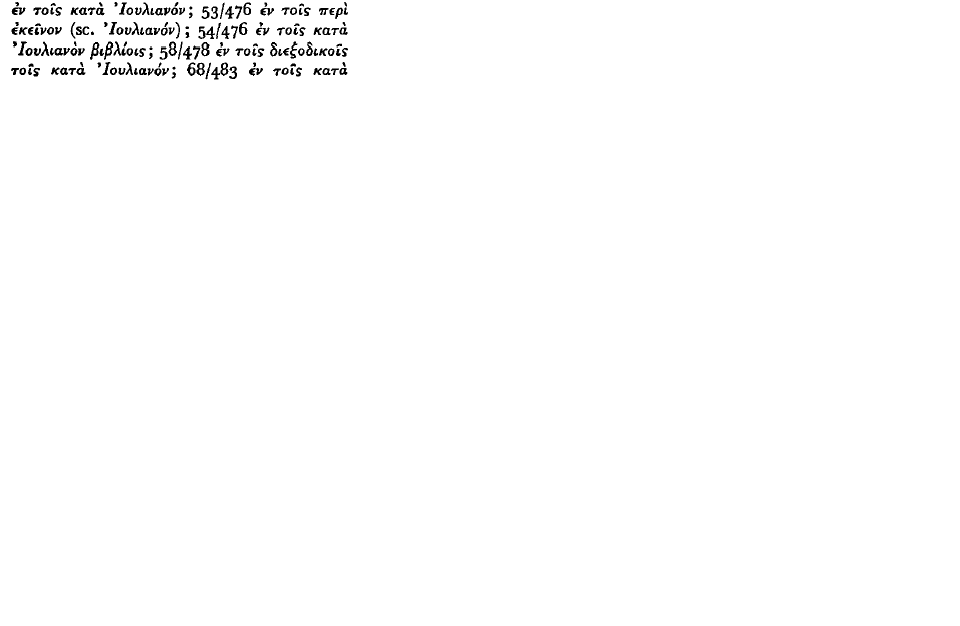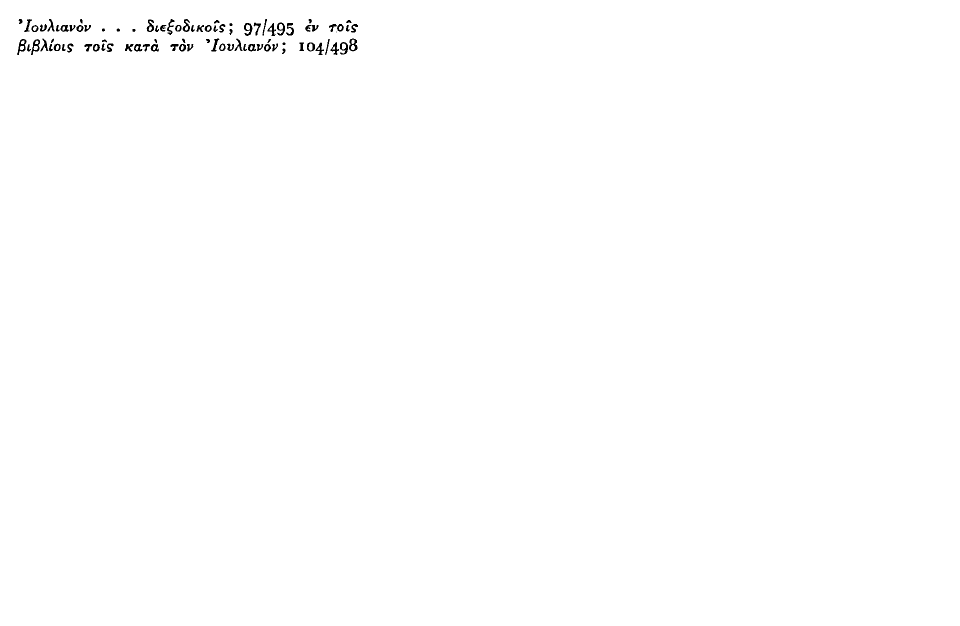Article contents
The NEA ‘ΕΚΔΟΣΙΣ of Eunapius’ Histories
Published online by Cambridge University Press: 11 February 2009
Extract
Eunapius makes it clear in his Lives of the Philosophers, published some time after A.D. 396, that he had already published the major part of his historical work, and that he was contemplating extending its scope. He refers to the Gothic invasion of Greece in 395, and states that he has already recorded some of the disasters which befell about that time, and that he hopes to relate others  (52/476).
(52/476).
- Type
- Research Article
- Information
- Copyright
- Copyright © The Classical Association 1953
References
page 165 note 1 In quoting from the Lives of the Philosophers I have given the reference both to Boissonade's edition of 1822 and to the Didot edition of 1849. Continental scholars usually refer to the former, while the pagination of the latter is reproduced in the Loeb edition (Philostratus and Eunapius: The Lives of the Sophists, with an English translation by Wilmer Cave Wright; London, 1922), which is probably the one most readily available to English readers.
page 165 note 2 For Photius' remarks on Eunapius cf. Migne, , P.G. ciii, cols. 245–8;Google ScholarMüller, , Frag-menta Historicorum Graecorum, vol. iv, p. 9;Google Scholar and Dindorf, , Historici Graeci Minores, vol. i, pp. 205–7.Google Scholar
page 165 note 3 The historical fragments are to be found in Müller, , op. cit., pp. 11–56Google Scholar, and Dindorf, , op. cit., pp. 207–74.Google Scholar On this point cf. Müller's, note on p. 53.Google Scholar
page 166 note 1 Rh. Mus. xlvii (1896), pp. 321 ff.Google Scholar
page 166 note 2 Excerpta Historica Constantini Porphyrogeniti, ediderunt Boissevain, De Boor, Büttner-Wobst, vol. iv, p. 71.Google Scholar
page 166 note 3 It should be noted that De Boor does not apply his theory to the Lives of the Philosophers also, as Wright (op. cit., p. 340) says that he does.Google Scholar
page 166 note 4 Prolegomena in Eunapii Vitas Philosophorum et Sophistarum, Uppsala, 1897, pp. 33 f.Google Scholar
page 166 note 5 Byzantinische Litteraturgeschichte, p. 258.Google Scholar
page 167 note 1 See the remarks of Kroll, (Phil. Woch. 1898, pp. 932–4)Google Scholar, Boissevain, (Excerpta, vol. iv, p. xiv, n. 2)Google Scholar, and Schmid, (R.-E. vi, pp. 1121–7).Google Scholar
page 167 note 2 Symbola in novam Eunapii Vitarum ediHonem: Vollebregt, J. C., Amsterdam, 1929.Google Scholar
page 167 note 3 iii. 40–41.
page 167 note 4 v. 24.
page 167 note 5 Op. cit., pp. 20–35.Google Scholar
page 167 note 6 Cf. Förster's, edition of Libanius, vol. i, pp. 1 ff.Google Scholar On Lacapenus, cf. Krumbacher, , op. cit., pp. 558–60.Google Scholar
page 168 note 1 Loc. cit.
page 168 note 2 Op. cit., pp. 6–48.Google Scholar
page 168 note 3 ‘Eine Doppelfassung in den Sophisten-Biographen des Eunapios’, Hermes, 1923, pp. 441–7.Google Scholar
page 168 note 4 Op. cit., p. 93.Google Scholar
page 168 note 5 Cf. Excerpta, vol. iv, p. 84, no. 39. I have here adopted Boissevain's text.Google Scholar
page 168 note 6 This fragment and later descriptions of the Huns based on Eunapius are discussed by Thompson, E. A., A History of Attila and the Huns (Oxford, 1948), pp. 16 f.Google Scholar
page 169 note 1 There are eight of these including the one already quoted. The others are 47/473 

 The variation in the method of citation probably afforded Eunapius considerable satisfaction.
The variation in the method of citation probably afforded Eunapius considerable satisfaction.
page 170 note 1 It may be significant that although Dexippus is mentioned in the Lives (114/57), Eunapius does not there refer to any connexion between his own work and that of Dexippus.
page 170 note 2 I am very grateful to Prof. E. A. Thompson for advice and suggestions.
- 6
- Cited by


